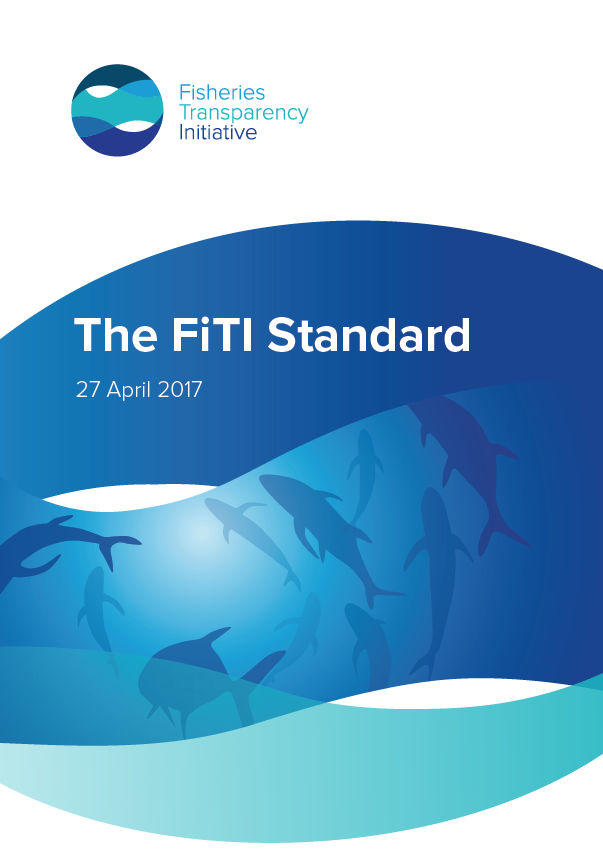About the FiTI Standard

At the heart of the initiative is the FiTI Standard, an internationally recognised framework on what information on fisheries should be published online by public authorities.
The FiTI Standard provides governments, the fishing industry (both large-scale and small-scale), and civil society with a comprehensive and credible way to achieve and maintain high levels of transparency on the management of the marine fisheries sector and the activities of fishers and fishing companies.
The FiTI Standard is the outcome of extensive discussions, spanning nearly two years, by members of the FiTI International Advisory Group, including representatives from governments, large-scale and small-scale fishing sector organisations, multinational and regional fisheries organisations and civil society groups working on fisheries and marine conservation.
The intention has been to produce a comprehensive Standard that covers all facets of the FiTI and provides clear direction to countries that want to be part of this initiative. Yet all those involved in this process appreciate that the FiTI will evolve further over time, and it will be the role of the FiTI International Board to review the FiTI Standard with the option of enhancing it.
Overall, the FITI Standard is divided in two main parts: Part I is intended for countries, Part II outlines the provisions for the international governance of the initiative.
The 12 transparency requirements
At the heart of the FiTI Standard are 12 transparency requirements which are applicable for all countries (for more Information please refer to section B.1 of the FiTI Standard):
| Public Registry of National Fisheries Laws, Regulations and Official Policy Documents | Post-Harvest Sector and Fish Trade | |||
| Fisheries Tenure Arrangements | Fisheries Law Enforcement | |||
| Foreign Fishing Access Agreements | Labour Standards | |||
| The State of the Fisheries Resources | Fisheries Subsidies | |||
| Large Scale Fisheries (Vessel Registry, Payments for fishing, Recorded catch data) | Official Development Assistance | |||
| Small-Scale Fisheries | Beneficial Ownership |
Key principles for increasing transparency and participation under the FiTI
| Multi-Stakeholder participation The FiTI is implemented in countries through National Multi-Stakeholder Groups, consisting of representatives from government, business and organised civil society. These groups work collectively to assess the information in the public domain, make recommendations on how to improve information published by national authorities and jointly approve the publication of FiTI Reports. | |
| Progressive improvement Countries are not expected to have complete data for every transparency requirement from the beginning. Instead, public authorities must disclose the information they have, and where important gaps exist, improvements over time must be demonstrated. As such, engaging with the FiTI is not intended to be a burdensome and costly research activity. | |
| Transparency in the public domain The FiTI emphasises the need for national authorities to develop and strengthen their own systems for collecting and publishing information online in a complete and accessible manner. The FiTI Report is therefore not intended to replace or duplicate existing government information systems. | |
| Public debate The FiTI offers an important means to raise levels of openness and public access to information which can support countries in maintaining or achieving robust democratic governance and accountability in their fisheries sector. |